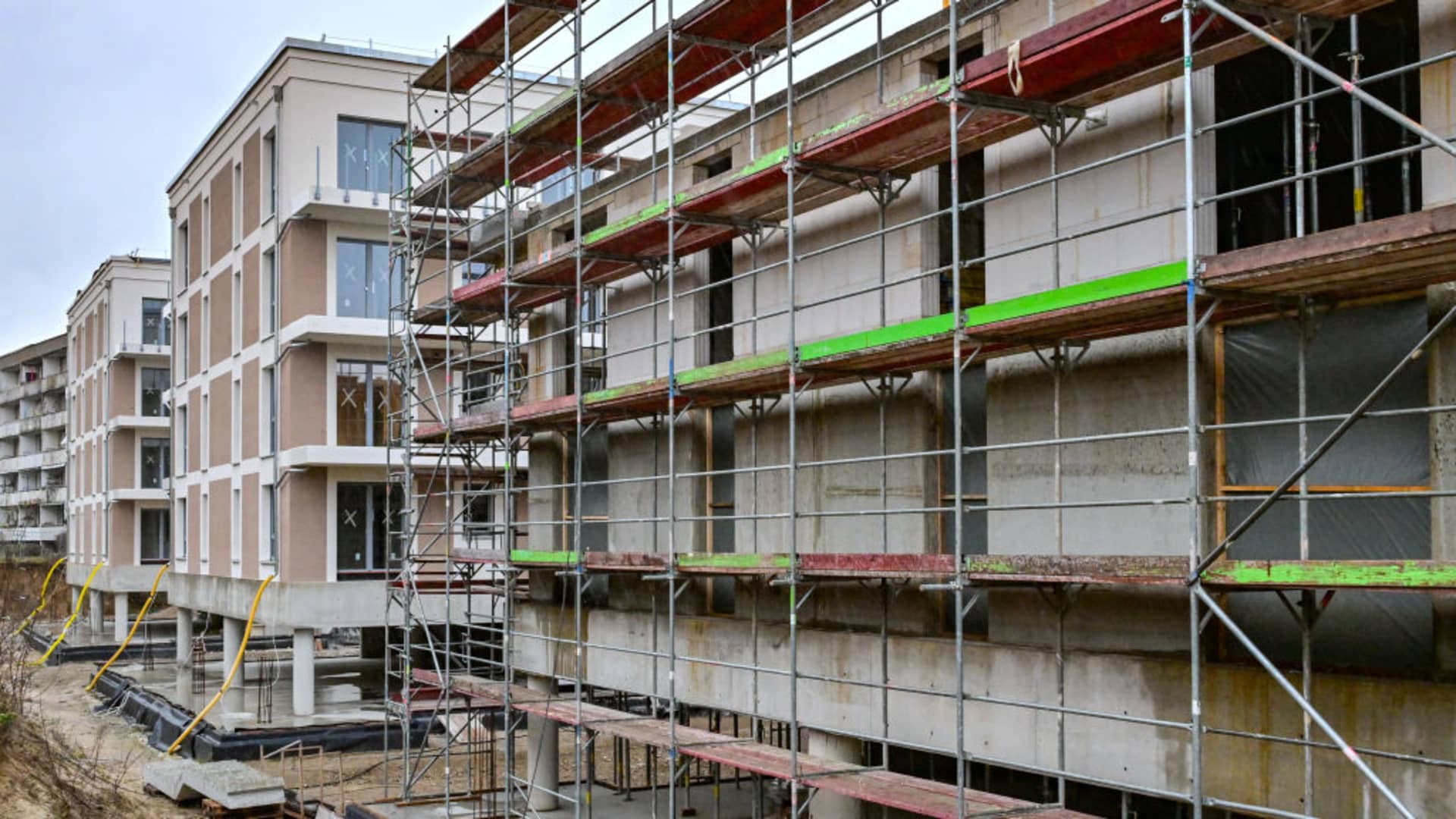Germany’s housebuilding sector has gone from bad to worse in recent months.
Economic data is painting a concerning picture, and industry leaders appear uneasy.
“The housebuilding sector is, I would say, a little bit in a confidence crisis,” Dominik von Achten, chairman of German building materials company Heidelberg Materials, told CNBC’s “Squawk Box Europe” on Thursday.
“There are too many things that have gone in the wrong direction,” he said, adding that the company’s volumes were down significantly in Germany.
In January both the current sentiment and expectations for the German residential construction sector fell to all-time lows, according to data from the Ifo Institute for Economic Research. The business climate reading fell to a negative 59 points, while expectations dropped to negative 68.9 points in the month.
“The outlook for the coming months is bleak,” Klaus Wohlrabe, head of surveys at Ifo, said in a press release at the time.
Meanwhile, January’s construction PMI survey for Germany by the Hamburg Commercial Bank also fell to the lowest ever reading at 36.3 — after December’s reading had also been the lowest on record. PMI readings below 50 indicate contraction, and the lower to zero the figure is, the bigger the contraction.
“Of the broad construction categories monitored by the survey, housing activity remained the worst performer, exhibiting a rate of decline that was among the fastest on record,” the PMI report stated.
The issue has also been weighing on Germany’s overall economy.
German Economy and Climate Minister Robert Habeck on Wednesday said the government was slashing its 2024 gross domestic product growth expectations to 0.2% from a previous estimate of 1.3%. Habeck pointed to higher interest rates as a key challenge for the economy, explaining that those had led to reduced investments, especially in the construction sector.
Light at the end of the tunnel?
Ifo’s data showed that the amount of companies reporting order cancellations and a lack of orders had eased slightly in January, compared to December. But even so, 52.5% of companies said not enough orders were being placed, which Wohlrabe said was weighing on the sector.
“It’s too early to talk of a trend reversal in residential construction, since the tough conditions have hardly changed at all,” he said. “High interest rates and construction costs aren’t making things any easier for builders.”
Heidelberg Materials’ von Achten however suggested there could be at least some relief on the horizon, saying that there could be good news on the interest rate front.
“I’m positive inflation really comes down now in Germany, maybe the ECB [European Central Bank] is actually earlier in their decrease of interest rates than we all think, lets wait and see, and if that comes then obviously the confidence will also come back,” he said.
Even if interest rate cuts are a slow process, von Achten says as soon as “people see the turning point” confidence should return.
Speaking to the German Parliament about the economic outlook on Thursday, Habeck said the government was expecting inflation to continue falling and return to the 2% target level in 2025.
The European Central Bank said at its most recent meeting in January that discussing rate cuts was “premature,” even as progress was being made on inflation. While the exact timeline for rate cuts remains unclear, markets are widely pricing in the first decrease to take place in June, according to LSEG data.
